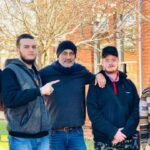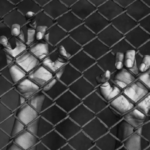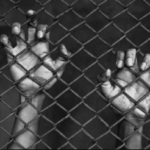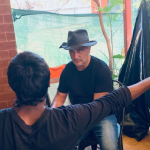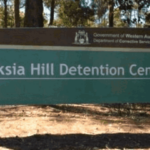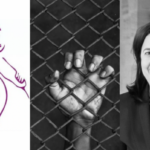Suicide of Detained Teen Highlights the Desperate Need for Reform
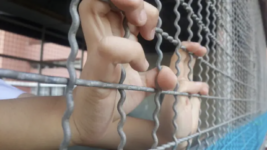
The counter-productive and potentially catastrophic consequences of detaining youths in facilities designed for adults and treating them inhumanely has hit the headlines once again, with the tragic death of a boy who succumbed to his injuries a week after attempting out of hopelessness to take his own life.
16-year old Indigenous youth Cleveland Dodd took the ultimate act of desperation on 12 October this year inside the notorious Unit 18 detention facility at Casuarina maximum security prison, after learning that his bail hearing was delayed.
He died in hospital a week later.
The tragedy highlights the impact of detaining children in centres and conditions designed for adults, and we must not let Cleveland’s passing fade into obscurity, but see it as a trigger for change.
Indeed, with all the political promises of change, many of our most vulnerable children remain at risk of life-long mental health impacts and even desperation to the point of suicidal ideation, and this must be addressed through adequate resources, infrastructure and qualified support to provide real help to some of our most troubled kids – and put them back on the right path.
On remand
While his criminal charges were going through the court system, Cleveland had been granted bail and was awaiting release into the community – something which is consistent with the presumption of innocence which has been all-but subverted with ever harshening bail laws.
Yet, according to reports, he was locked up day after day awaiting formal release and subjected to appalling conditions and horrific treatment by prison staff, some of whom are now reportedly under investigation by the CCC – Western Australia’s Corruption and Crime Commission.
A coronial inquest will also investigate the boy’s death – which must occur when there has been a death in custody.
Problems with Western Australia’s youth detention regime have been highlighted for many years, with youth support organisations and even judges calling the conditions in detention ‘dehumanising’.
Indeed in May of this year, 58 letters from detainees detailing abuse allegations from at both Unit 18 and Banksia Hill Detention Centre were tabled in WA parliament.
A class action brought by former detainees is underway, and earlier this year a Western Australian judge declared that the facility was ‘dehumanising’.
Unit 18 is only about a year old. While it is run by Banksia Hill (Western Australia’s only youth detention centre), it is actually a unit within the maximum-security Casuarina adult prison.
It was established to house youths because parts of the Banksia Hill facility are unlivable, under repair. Since Unit 18 became operational, there have been 20 suicide attempts within it’s walls.
The Queensland Government should take note of the Western Australian experience – it recently suspended its own Human Rights legislation to be able to keep locking children up in adult facilities, while it waits for new juvenile detention centres to be built.
Why are we locking up children in such appalling conditions?
Many of these facts and circumstances bring us back to the argument about whether we need to raise the age of culpability and whether children should be locked up in the first place.
Western Australian Corrective Services Minister Paul Papalia explained the obvious in the wake of Cleveland Dodd’s death, saying: “Many of the children had difficult lives before they ended up in detention. They’ve universally had terribly tragic experiences in their lives, and we get them at the end of that.”
He also noted that “There is no alternative for these juveniles … they need to be detained for a reason.”
However, in Australia, generally speaking, youth detention centres lack the specialist care and rehabilitation support these young offenders need.
Ironically, Cleveland Dodd’s charges would be heard in the Children’s Court due to his age. But he was detained in an adult prison.
His death is particularly tragic because he self-harmed after receiving the news his bail hearing had been delayed – for a third time.
Youth Justice in crisis
This fact doesn’t necessarily paint a picture of a healthy functioning youth justice system.
Cleveland had been on remand (pre-trial detention) since July this year. He had allegedly broken into a caravan park and committed aggravated burglaries, but was yet to be tried for these offences. When his bail hearing was delayed, the court heard that he had been charged with additional offences, including breaching bail and assaulting a public officer – which complicated things further.
But it is in fact a breach of the presumption of innocence and the right to liberty to lock up people for extended periods of time, when they are, for all intents and purposes, legally innocent.
Nationwide, unsentenced inmates on remand make up about 36.6 percent of the prison population, or more than one in three prisons, and arguably, that number, which has increased exponentially in recent years.
Tough bail laws
Historically, the decision regarding whether a person would be granted bail was largely based on an assessment of whether the alleged offender would actually turn up to court.
However, in recent years, some Australian jurisdictions – including New South Wales – have changed bail laws to focus on community safety . Increasingly, the onus is on the alleged offender to prove why they should be granted bail.
In many cases, people facing minor offences are being put in the same category for the purpose of bail applications as those facing far more serious charges.
Bail reform has stemmed mostly from high profile cases – Adrian Bayley was on bail when he raped and murdered Jill Meagher in 2012. Anthony Sampieri, was on parole when he sexually assault a seven year old girl at Kogarah Dance Studio in 2018.
And while cases such as these stir up social concern and bail reform is definitely worth considering on a regular basis, we have to remind ourselves that not everyone is going to commit serious violent offences while on bail or parole.
And laws, no matter how well-intentioned, can have severe consequences.
Statement by Cleveland Dodd’s family
In relation to young Cleveland Dodd, the statement made by his family says it better than anyone else can:
“Our family is overwhelmed with grief as we come to terms with the unthinkable – the loss of our most beloved boy, who did not belong in that horrible place known as Unit 18. Our boy should have had been at home with his family who he loved, and who loved him dearly. Our boy deserved a future.
We want answers.
Our beloved boy had never, ever self-harmed prior to being unlawfully locked down, day after day, inside Unit 18, and drove him to take his own life in desperation, in the early hours of October 12, 2023.
We as a First Nations People have been suffering from one generation to another, and we cannot stand by and watch this carnage on our children. The Coronial Inquest into his death will take far too long to bring meaningful change, policy, and law reform. We his family and community, will not wait patiently in the wings, while legal processes run their course.
We will not rest until justice for our boy, and for all other First Nation’s children, is secured.
To the State Government we say, act now, today, to prevent another young person from needlessly and tragically dying in detention. Future commitments, platitudes and unfulfilled promises only inflict more pain. Close Unit 18 without further delay – a maximum security adult prison is no place for children.
To all the children detained in Banksia Hill and Unit 18, we say stay strong, look out for one another.
Our beautiful boy is with the spirits of our ancestors, in their strength of our ancestors, he too rests with strength.
Our ancestors call to us to stand up for our children, the children of the sunrise, the children of beautiful beginnings they have been denied by recent generations.”


